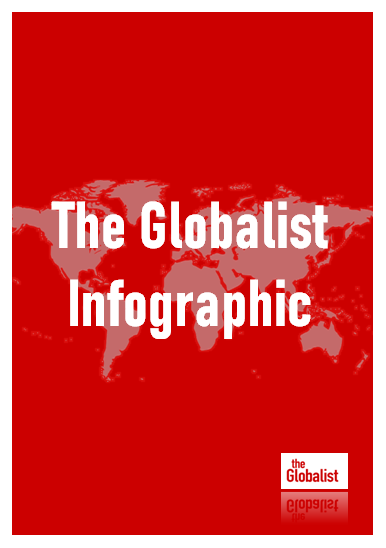China’s Global Role: The 2010 Perspective
Why does China have to step up and take the helm of global economic reform?
April 14, 2020
Editor’s note: While this analysis was written a decade ago in the aftermath of the 2008/9 financial crisis, it offers interesting parallels to today. Plus, even though China has changed considerably in the intervening years, some challenges for it and the global community remain the remarkably similar.
Quite simply, China’s powerful export-led growth dynamic couldn't have been realized without trade liberalization and surging world trade — two of the most important pillars of globalization.
The globalization of trade and capital flows, to say nothing of the cross-border surge in information and labor flows, makes it hard to envision that an increasingly interconnected world would ever reverse course.
However, there are worrisome signs of just such a possibility. In this post-crisis era, the drumbeat of trade frictions and protectionism is growing louder.
Facing years of stagnation
The developed world is facing years of exceptionally high unemployment and a seemingly chronic stagnation of real wages. Rightly or wrongly, it views trade-related pressures as central to this dilemma.
China has been singled out as a lightning rod in this debate. At the same time, the appetite for multilateral trade liberalization has waned, as evidenced by the lack of meaningful progress on the Doha Round.
Meanwhile, the world's willingness to embrace the threat of climate change has been drawn into sharp question in the aftermath of a disappointing Copenhagen Summit.
While global leaders continue to talk the talk of globalization, the self-interests of "localization" are more and more apparent.
Enter the G20
Despite these worrisome signs, the broad outlines of a new global policy architecture are now emerging out of the post-crisis carnage. Centered on the G-20, it represents a major shift away from the long-dominant U.S.- and European-centric G-7 global power structure.
Most importantly, the G-20 is a far broader and more representative collection of large developed and developing nations alike.
In contrast to the G-7, which accounts for just 11% of the world's population and 42% of world GDP (as measured on a PPP basis), the G-20 accounts for about 65% of the world's population and approximately 75% of world GDP. As the largest developing economy in the world, China needs to embrace the leadership responsibilities that the G-20 construct now offers.
Yet as a poor nation, China has not always been comfortable in facing global challenges. With more than 750 million of its citizens still living in low-income rural areas, this is understandable. The ascendancy of the Chinese economy is not an excuse for the nation to turn its back on the imperatives of poverty reduction.
Nevertheless, the global dimensions of its challenge have taken on an entirely different order of magnitude in the post-crisis era. It is up to China to walk the delicate line between these domestic and global considerations. China must contribute to global rebalancing by reducing its massive saving and current account surplus.
Global financial crisis
To do that, China will also have to deepen its appreciation of the sources of the Great Crisis and the role that its economy played in this destabilizing turn of events.
While there is a long list of culprits, there can be no mistaking the role of global imbalances as a major source of the problem. Asset and credit bubbles spurred a binge of "virtual consumption" in the world's largest deficit economy — the United States.
The chicken and the egg
At the same time, excess saving of a consumption-deficient Chinese economy kept China on a destabilizing export-led growth path that required a recycling of a massive reservoir of foreign exchange reserves into dollar-denominated assets. It remains open to debate as to which came first — the chicken (China) or the egg (the United States).
But when the United States’ bubbles burst, all the other chickens certainly came home to roost. The rest of a tightly linked world economy was quick to follow — hit hard by a record plunge in global trade, a seizing up of global capital flows and a run on the financial institutions that were most levered to this unbalanced strain of global growth.
Contrary to widespread belief, there was no decoupling in an era of globalization — especially as the world lurched toward the abyss in late 2008 and early 2009. For China, like all other externally dependent economies, this crisis was an unmistakable warning sign. Persistent imbalances are hazardous to sustained prosperity. Rebalancing is an urgent post-crisis imperative.
A world that does not attend to its systemic imbalances is a world that is doomed to yet another crisis. As far-fetched as such a possibility seems in the aftermath of the global financial crisis, the post-crisis world does not seem committed to a serious rebalancing agenda.
While U.S. consumers have begun to prune excess debt, this deleveraging is being more than offset by massive government budget deficits — sufficient to have pushed the U.S. net national saving rate into negative territory — down to a record low of -3.2% of national income in the third quarter of 2009.
With outsize U.S. government dis-saving likely to persist for years to come, the United States’ current account outlook — the major source of imbalance on the deficit side of the global imbalance equation — remains extremely disconcerting.
Europe remains trapped in a quagmire
At the same time, as underscored by serious fiscal problems in Greece, Portugal, Ireland, Italy and Spain, Europe also remains trapped in a quagmire of ever-mounting public sector indebtedness.
And, of course, in Japan, the public sector debt-to-GDP ratio is 180% and still rising. In short, there is no credible post-crisis rebalancing agenda in the developed world.
In this context, it is both ironic and hypocritical that a crisis-torn developed world has singled out China as the source of the lingering tensions behind persistently high unemployment and relatively stagnant real wages.
There is a growing chorus of complaints about an undervalued renminbi as one of the most important factors behind the pressures still bearing down on workers in the rich industrial economies.
With unemployment rates of about 10% in both the United States and Europe, the politics of China bashing have taken on a new urgency. If only China would revalue the renminbi, goes the argument, workers in the developed world would experience quick relief.
Unfortunately, nothing could be further from the truth. For any economy, employment growth is a "derived demand"— critically dependent on the state of end-market demand. In the United States, the likely persistence of sub-par job creation is more an outgrowth of weak post-bubble U.S. consumption prospects than the result of a mispriced Chinese currency.
Trade sanctions on China
Ironically, if Washington were to impose trade sanctions on China in an attempt to relieve perceived currency distortions, such actions would backfire — putting new and worrisome pressures on the post-crisis world.
However strongly China may disagree with the motives and logic of trade frictions, it cannot afford to ignore the politicization of the globalization debate. In a weak post-crisis climate, this saber rattling cannot be dismissed as an idle threat.
Politicians need scapegoats
China bashing is not about logic. Politicians need scapegoats, and the high-flying Chinese economy is at the top of Washington's list. It will take vision, determination and leadership for China to navigate these treacherous waters.
Significantly, the Chinese leadership cannot operate from a position of denial. Instead, it must start from the premise that it, too, has a problem — namely, the structural imbalances that have spawned massive current account and trade surpluses. If Beijing fails to address this key problem, the Chinese economy will hardly be spared the next time the world gets into trouble.
China is at a pivotal moment in its remarkable journey. Long pragmatic and steadfast in its commitment to social stability, I am optimistic that China will seize the moment. There is no other good choice.
Takeaways
China cannot afford to ignore the politicization of the globalization debate.
China bashing is not about logic. Politicians need scapegoats.
China will have to deepen its appreciation of the role that its economy played in this destabilizing turn of events.
The Chinese leadership cannot operate from a position of denial. Instead, it must start from the premise that it, too, has a problem.
When the United States' bubbles burst, all the other chickens certainly came home to roost.

